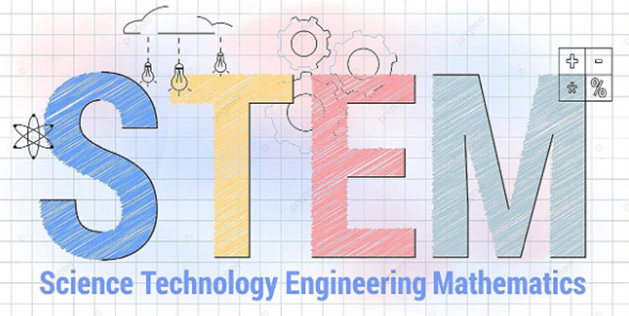CBSE vs. Other Boards: Choosing the Right Education for Your Child
As a parent, you naturally want your child to receive the best possible education. Choosing the right education board is an important decision that significantly influences their early development, personality, and future career path.
This choice requires careful consideration of various factors, including the curriculum, teaching methods, and overall school environment. Each education board offers a unique approach, shaping the foundation of your child’s academic journey and influencing their future options.
Through thorough research, you can make informed decisions. You must carefully evaluate these factors and ensure your child receives the most suitable and enriching educational experience that aligns with their individual needs and aspirations. This article will walk you through the several educational boards and the factors you must consider when choosing the right school for your child.
Evolution of Boards
Educational boards, like the rules of a game, have changed over time! In the past, they mainly set the topics children learned and gave big tests. Now, they do more. They help schools choose their own ways of teaching and learning and focus on helping kids grow in many ways, not just on tests. They also work together to make sure education stays good across different places and use technology to make learning more personal and exciting. As the world changes, educational boards keep changing, too, to make sure children get the best education possible!
For instance, after India gained independence, there was a great demand for physical infrastructure, such as roads, steel plants, mines, bridges, and dams. Consequently, the education focus shifted towards engineering and technology. This led to the establishment of institutions like IITs and NITs and the introduction of CBSE with a focus on STEM ( Science, Technology, Engineering and Mathematics) education, aligning with the country’s vision for the future.

Choosing the right education board
Appropriate knowledge and information are essential for making well-informed decisions. To choose the best education board for a child, it is essential to understand what each board has to offer and to assess how well the curriculum and instructional strategies fit with the child's goals in life and profession. Equipped with this knowledge, parents and guardians may make thoughtful choices that address the particular needs and goals of their kids, guaranteeing a well-rounded and satisfying educational experience. Here, we have given an overview of the main curriculum areas covered by the major education boards that Indian schools adhere to.
CBSE (Central Board of Secondary Education)
As one of the most extensively used national-level boards in India, CBSE is renowned for adhering to NCERT regulations. With its primary goal of facilitating students' migrations between states, CBSE was founded in Ajmer and now has over 24,000 affiliated schools nationwide. Since its establishment, CBSE has grown rapidly. The close alignment of CBSE with important tests for higher education in India is one of its main advantages.
The core areas of science, maths, social studies, and languages are given special attention in the curriculum. With a focus on science and maths, CBSE is well-known for its strict theoretical approach. It strives to give students a solid understanding of these foundational fields to prepare them for professional courses and entrance tests. Because of this, it's a great option for those who want to work in STEM fields.
The CBSE curriculum is an excellent place to start if one's goal is to pursue a career in medicine or engineering.
ICSE (Indian Certificate of Secondary Education)
The fundamentals of concepts are emphasised heavily in the ICSE curriculum in order to create successful learners who like studying. It encourages understanding and practical application of knowledge. ICSE ensures a well-rounded and comprehensive education by giving equal weight to languages, arts, and humanities in addition to mathematics and science topics.
In ICSE schools, English is the main language of instruction, emphasising improving language proficiency. Socially Useful Productive Work (SUPW) and community service are examples of required graded subjects that help students develop a feeling of accountability and engagement. The comprehensive technique, emphasis on learning a new language, mandatory community service, and promotion of extracurricular engagements all help ICSE students who are applying to foreign institutions and universities create strong resumes. Additionally, ICSE students have an edge on language tests like the TOEFL and IELTS, thanks to their solid foundation in English.
State Board
Every state is permitted by the Ministry of Education to develop its own curriculum and offer its own standardised test. The state curriculum, which differs from state to state and is designed to teach children about their particular region and state, is followed by government-run schools and certain private institutions.
The State Board prioritises teaching local and regional languages, state history, culture, and national and international history. The State Board's individualised approach is to provide children with a comprehensive awareness of their community, the nation, and the world. State boards are a great place to start for anyone who wants to take public exams like the Civil Services Examination, Examinations, and National Defence Academy & Naval Academy Examination, among others.
Switching Boards
It is important for parents to keep an eye on their child's progress within a particular school board. A child can move to a different board if they face difficulties or want to explore something more compatible with their interests, passions, and life/career objectives. Although students can make this shift at any school level, grade 8 is frequently seen as the best time to do so. Making the switch early on and choosing an international board like IB/Cambridge can help the child's academic path.
Factors to Consider When Choosing an Education Board
Curriculum
Evaluate each education board's curriculum, paying special attention to the subjects taught, how they are taught, and the overall design to make sure your child's academic needs and interests are satisfied.
Assessment Methods
Think about the assessment techniques used by each board, including standardised testing, ongoing assessment, or a mix of both. Select a board that fits your child's preferred style of learning and assessment.
Future Aspirations
Take your child's preferred professional path into consideration. Make sure the board you choose for your child fits with their intended course of study and professional path, as different boards may focus on particular subjects or careers.
Extracurricular Activities
Assess how much emphasis is given to extracurricular activities. A well-rounded education can be greatly enhanced by including athletics, the arts, and community service, which is why certain boards might put a strong emphasis on a holistic development approach.
Learning Style
Find out which type of learning your child prefers—whether they do best with a theoretical or practical approach. Select an educational board that will work well with their learning preferences and create an atmosphere that will help them succeed academically..
Conclusion
The choice between the CBSE and other education boards is based on a number of variables, including the curriculum, the methods of assessment, and how well it fits your child's future goals. Every board has its own advantages, and choosing the right board for your child requires knowing their learning preferences.
In the educational world, HDFC School stands out as a remarkable institution that excels at offering a comprehensive and meaningful educational experience. HDFC School is known for its curriculum that aims to promote students' complete well-being in addition to their academic achievement.
